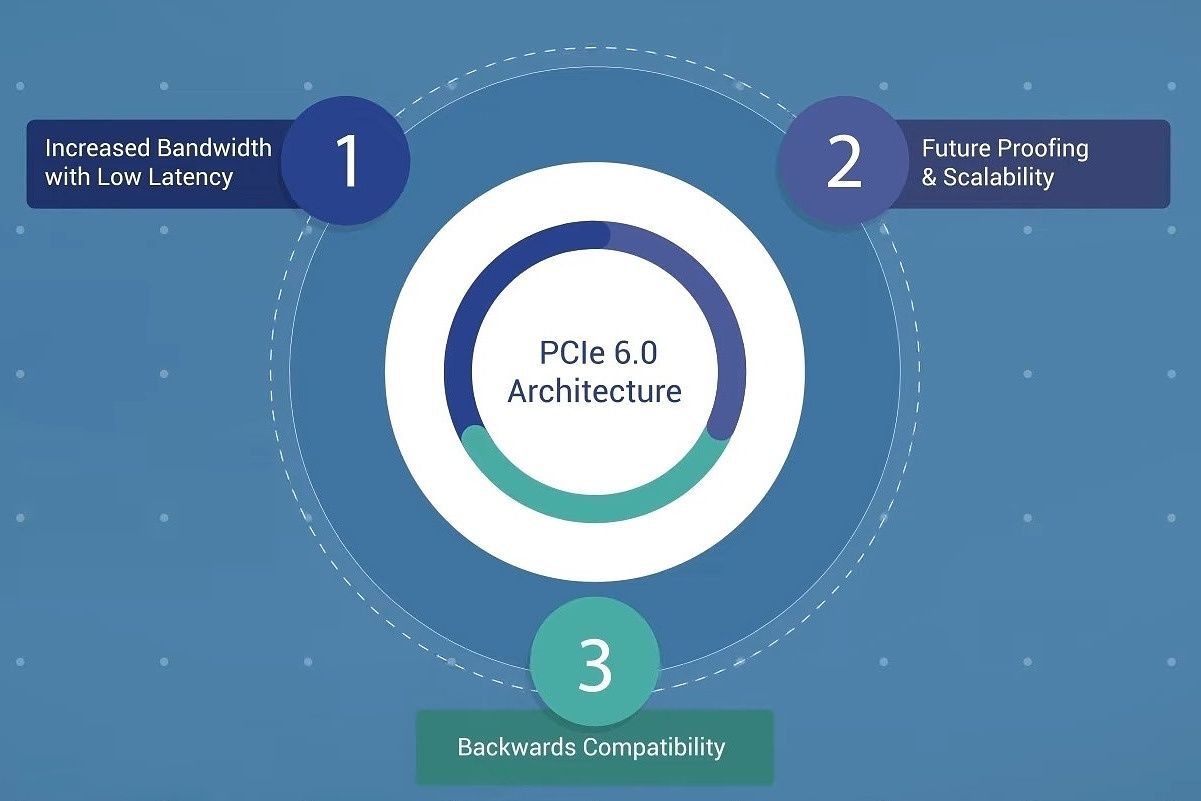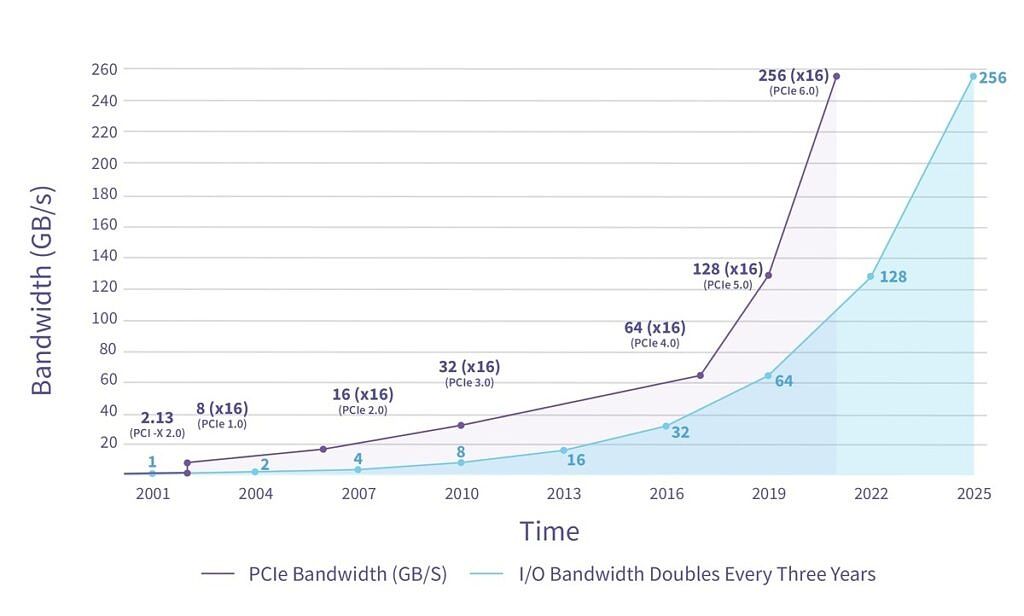PCI Express, or PCIe, 5.0 has barely started making its way to consumer products, but version 6.0 is already on the horizon. The PCI Special Interest Group (PCI-SIG) announced the finalized version of the upcoming standard this week, once again doubling the bandwidth of the previous generation. Arriving less than three years after PCIe 5.0 was introduced, PCIe 6.0 offers raw data rates of up to 64 GT/s (gigatransfers per second) and bidrectional bandwidth up to 256GB/s in x16 lanes.
The new standard uses 4-level pulse amplitude modulation (PAM4) signaling, along with forward error correction (FEC) and cyclic redundancy check (CRC) technologies to offer additional bandwidth and lessen the bit error rate that often affects PAM4 signaling. All of this comes with no impact on latency, so you should be able to enjoy the full performance of the high-speed lanes. As usual, PCIe 6.0 is also backwards compatible with previous generations of PCIe.
“PCI-SIG is pleased to announce the release of the PCIe 6.0 specification less than three years after the PCIe 5.0 specification,” said Al Yanes, PCI-SIG Chairperson and President. “PCIe 6.0 technology is the cost-effective and scalable interconnect solution that will continue to impact data-intensive markets like data center, artificial intelligence/machine learning, HPC, automotive, IoT, and military/aerospace, while also protecting industry investments by maintaining backwards compatibility with all previous generations of PCIe technology.”
The latest version of PCI Express keeps up with the tradition of doubling the available bandwidth every three or so years. PCIe technology has been developing so quickly that consumer products usually take a while to catch up. We're starting to see laptops benefit from PCI 4.0 SSDs, and the first PCIe 5.0 SSDs for servers were announced just a few weeks ago. It will be a while before PCIe 6.0 makes its way to consumers.
To be fair, it's unlikely you'll be needing these kinds of speeds any time soon. Samsung's new PCIe 5.0 server SSD, promises speeds up to 13,000MB/s, which is already more than enough to handle any file transfers you could ever want to do in a normal environment. Even with additional devices like GPUs and RAM becoming ever more powerful, the full bandwidth of PCIe often goes underutilized. This mostly benefits data centers and servers that deal with massive amounts of data.


